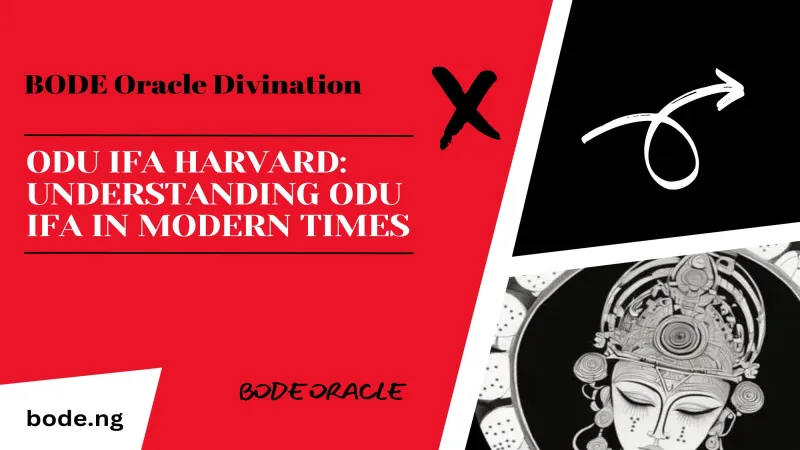The Ifa divination system is an ancient practice widely used among the Yoruba people and has also spread across the Americas and the Caribbean through the African diaspora.
It involves a vast collection of texts and formulas to guide decision-making. At the center of this system is Ifa, also known as Orunmila, the Yoruba deity of wisdom and intellectual development.
Unlike other divination methods in the region that rely on spirit mediums, Ifa divination is not based on a person having special powers to communicate with spirits.
Instead, it uses a structured system of signs that are interpreted by a trained Ifa priest, or babalawo. People turn to this system whenever they face important personal or community decisions.
The heart of Ifa divination is the literary corpus called "odu," which consists of 256 sections, each containing several verses known as "ese."
Although the exact number of ese is unknown due to their continuous growth, it is estimated that each odu contains about 800 ese.
Every one of the 256 odu has a unique signature determined by the babalawo through the use of sacred palm nuts or a divination chain. These verses, the most vital part of the Ifa system, are chanted in a poetic form by the priests.
They carry deep reflections of Yoruba history, language, beliefs, and worldview, and even address contemporary social issues. Knowledge of Ifa has been carefully passed down through generations of Ifa priests within Yoruba communities.
You Can Also Read More On
Brief History of Hermeneutics in Relation to Odu Ifa
However, due to colonial rule and the influence of foreign religions, traditional beliefs like Ifa have faced discrimination.
Many Ifa priests, who are often elderly, struggle to preserve the tradition and pass on their knowledge to younger generations.
As a result, interest in practicing and consulting Ifa is declining among the youth, coupled with an increasing rejection of traditional divination systems in general.
The knowledge embedded in Odu Ifa has historically been passed down within Yoruba communities through oral tradition.
Though modern influences, such as colonialism and the spread of foreign religions, have threatened its preservation.
Despite this, Odu Ifa remains a key part of Yoruba identity, even as interest in practicing and understanding its teachings has waned among younger generations.
In modern times, efforts to understand and preserve Odu Ifa have extended beyond Yoruba communities. Academic institutions, including places like Harvard, have sought to explore and document Odu Ifa in a way that resonates with contemporary scholars and practitioners alike.
This recognition reflects the ongoing relevance of Odu Ifa as not just a cultural artifact, but as a living system of wisdom that continues to offer guidance for navigating life's challenges in the modern world.
Read More
Ọ̀rúnmìlà: Greater Than Socrates
Orunmila was a key intellectual figure in the Yoruba Ifa divination. Orunmila is credited with creating the several verses linked to the Odu Ifa.
These verses capture the teachings and discussions that took place with him and have been passed down orally through generations. Orunmila is remembered as an exceptionally wise sage, attracting many students eager to learn from him.
Unlike Socrates, with whom he is compared in Sophie Oluwole's book The Socratic Odyssey: Orunmila and Socrates, Orunmila was not just a thinker but also well-off.
His father, Jakuta, likely worked as a stone mason, while his mother, Alajeru, was a successful trader. Orunmila had many wives, the first being Osun, who is sometimes credited with teaching him the art of divination.
Another of his wives, Iwa, inspired him deeply with her virtue, and Orunmila upheld virtue as the foundation of an ideal life. Though religious and believing in the divine origins of the Yoruba system of geomancy, which he revolutionized, Orunmila placed great emphasis on reasoning.
People Also Read
Iwe Odu Ifa by Ifayemi Awopeju Bogunmbe
Odu Ifa Signs And How They Are Cast
When asked about the role of Ifa in human guidance, his recorded response in Osa Iwori was, "Imoran l’akoko da ki a to d’Ifa," meaning, "Reasoning with humans should come before seeking spiritual help."
Orunmila also introduced a mathematical perspective, believing in the binary nature of reality's elements, which he argued stem from a basic axiom.
From this, he developed Ifa as a systematic way of storing information. His teachings are preserved in various forms—poetry, prose, chants, litanies, and songs—reflecting his broad intellectual influence.



